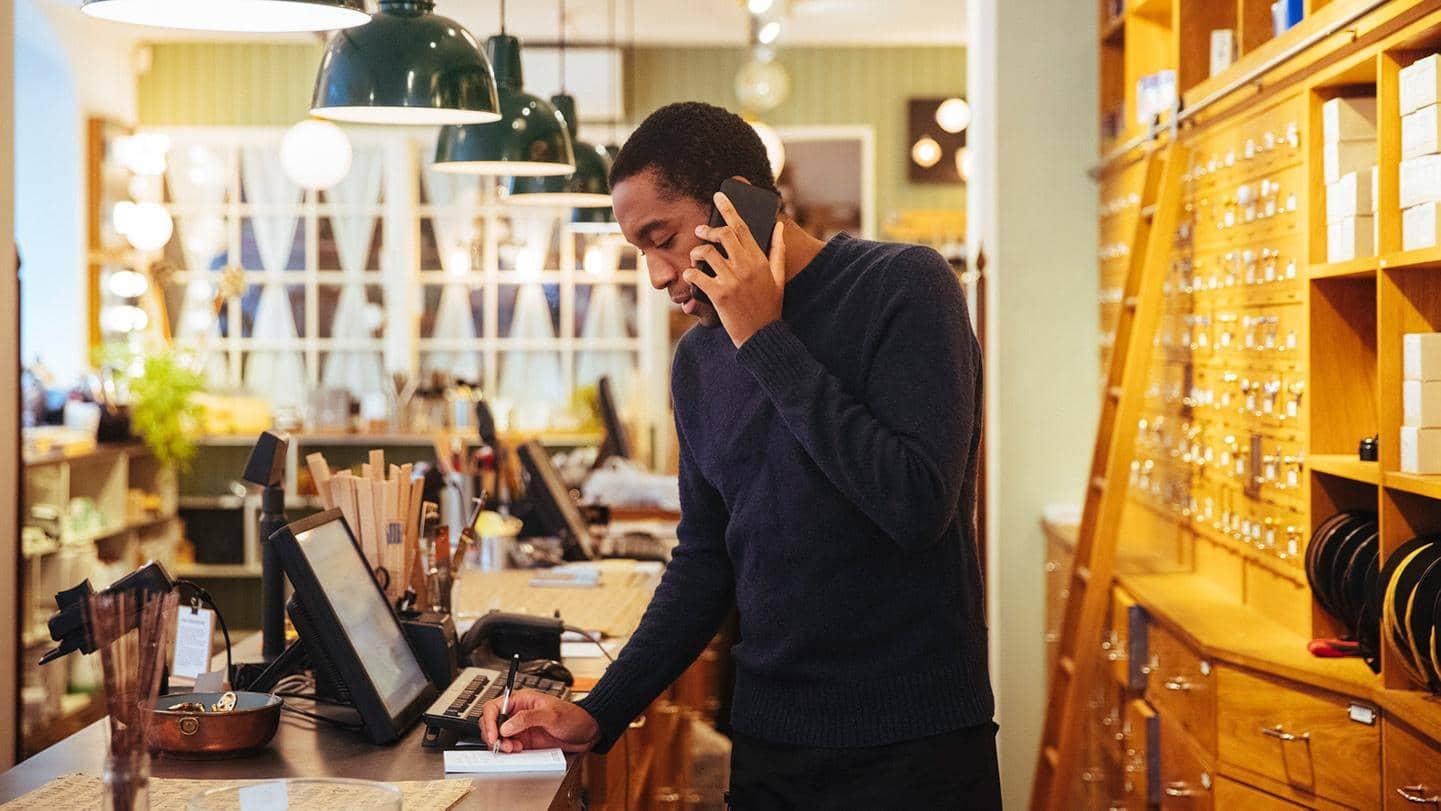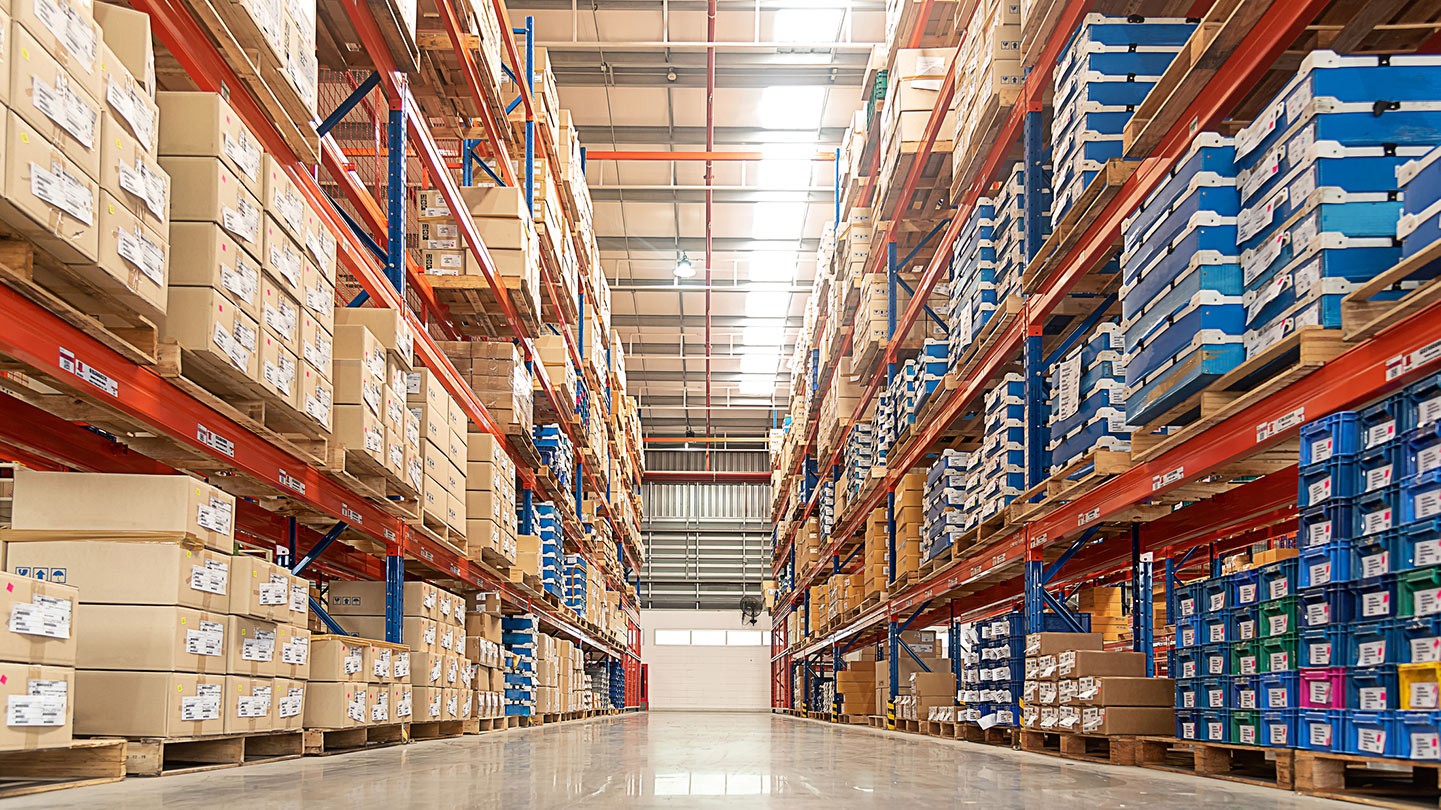
Impact
Getting retail and wholesale back to business
Barclays has supported UK retail for more than 300 years and is a trusted partner to many leading businesses in the sector. Retail and wholesale experts Ian Taylor and Karen Johnson share how businesses are adapting to new challenges, the support available to the sector and how the consumer landscape could change.
The retail sector comprises over a third of all consumer spending in the UK, but the lockdown prompted by the coronavirus pandemic resulted in the closure of the non-essential stores, which make up 70% of retail units.
Supermarkets and pharmacies had to swiftly adapt to unprecedented circumstances, implementing new social distancing measures, and many other businesses pivoted to online order and collection services.
Meanwhile, wholesalers have faced different challenges, from social distancing and hygiene measures, to delayed overseas supply chains. There’s also a new need to predict rapidly evolving consumer demands.

What we've seen over the last couple of months has accelerated what was probably going to happen over the next two or three years
Regional Director for Business Banking at Barclays UK
“What we've seen over the last couple of months has accelerated what was probably going to happen over the next two or three years,” says Ian Taylor, Regional Director for Business Banking at Barclays UK.
“I think there's going to be a significant shift in buying behaviour in the future. In terms of consumer spending, food has been absolutely fine, and people are still buying household and electrical items online. It's more the discretionary spend around clothing, footwear and furniture that’s going to take time to come back.”
Financial support has been vital in helping businesses maintain cash flow while navigating these obstacles: government schemes like CBILS, CLBILS, Bounce Back Loan and the Coronavirus Job Retention Scheme are available, alongside 12-month business rates holidays, protection from eviction for commercial tenants and options to defer VAT payments.
Barclays is also offering educational resources to support businesses through challenging times, from weekly client calls and newsletters to online webinars. Karen Johnson, UK Head of Retail, Wholesale and Healthcare at Barclays Corporate Banking, advises that keeping clients informed is essential as they adjust to the “new world” of retail, after the coronavirus.
Resetting retail
The UK government published a timeline outlining plans for retail outlets to reopen in June, and the brick-and-mortar retailers that have been closed have been thinking about how they will operate when they open their doors. It is likely that new rules on social distancing, PPE and hygiene will affect running costs, and limit the rate of sales – but businesses could also see a shift in customer mindsets.
“Over the last three months, more people have switched to buying online and have got used to having their purchases delivered to their doorstep. To survive, businesses will have to adapt to a more digital world going forward,” says Taylor. This could result in extended returns policies, an expansion of well-established home delivery and increased use of ‘click and collect’ services: “There will be more online transactions, but there will also be more places to go and pick up goods at your convenience.”
The pandemic has also accelerated the use of card payments, a trend that Barclaycard innovation could help facilitate.
Johnson says businesses may need to think creatively to cater to their audience when they open their doors, placing a greater emphasis on experiential elements in their stores: “With a reduced need for people to visit the high street to purchase goods, retailers have to give reasons for them to make the effort. Retailers need to reflect on what people will have missed during lockdown and try to present some of this within their store propositions, whilst also adhering to government re-opening safety guidelines.
“Consumers will reset their relationships with brands post-coronavirus,” she adds. “They will align with those behaving responsibly when spending their money. How businesses treat employees, suppliers and their role in the community will be important. This doesn’t just call for a marketing change – but a change in how retailers conduct business.”
Our leading digital solutions, as well as market insights and thought leadership, are key to helping our clients adapt and adjust in these unusual times
UK Head of Retail, Wholesale and Healthcare for Barclays Corporate Banking
The Barclays Back to Business Programme, a free course for SMEs, created in partnership with the Cambridge Judge Business School, is one way of preparing for the future. The self-paced programme will offer participants the opportunity to learn about managing cash flow, business planning and strategies to improve resilience.
The experts add that the specialised industry knowledge of the bank’s relationship team will continue to be an asset for clients
“Retailers are going to have to really provide added value service and create a community rather than wait for people to walk in,” says Taylor. “We spend a lot of time on building industry knowledge in our relationship managers. We use those managers to help provide support and education to clients, and to help them build their own internal management teams.”
Johnson agrees, adding that the bank is well placed to help businesses move forward: “Our leading digital solutions, as well as market insights and thought leadership, are key to helping our clients adapt and adjust in these unusual times. They benefit from having a Relationship Director who understands the industry and is on hand to support them.”
How is Barclays helping businesses prepare for future changes to the sector?
It is estimated that coronavirus has accelerated existing digital trends by three to five years. Barclays is providing help and support to retailers of all sizes and across all channels to prepare for the new future.
Evolution of card payments
The Barclaycard team is dealing with the current situation – for example, increasing the contactless payment limit and moving card terminals to support social distancing. It is also looking to the future and how clients can enhance their e-commerce platforms, and exploring alternative in-store payment methods which reduce the need for contact.
Processing of cash and cheques
Whilst usage has decreased significantly, stores need to be re-cashed, ready for opening. And their employees are seeking safe and efficient ways of handling cash and cheques. The Barclays cash team has a variety of solutions that support efficiency as well as security.
Trade and supply chains
The pandemic led to many supply chains being disrupted, and new supply chains evolving. Barclays is supporting clients with this transition through working capital analysis tools, innovative funding structures and risk mitigation solutions, while continuing to digitalise our processes.
Operational efficiencies
Barclays has provided a range of digital solutions to support retailers’ finance teams working remotely, as well as guidance on how to protect the business from fraud. As these teams return to offices, our colleagues are communicating with our clients, to implement new and more efficient ways of working.